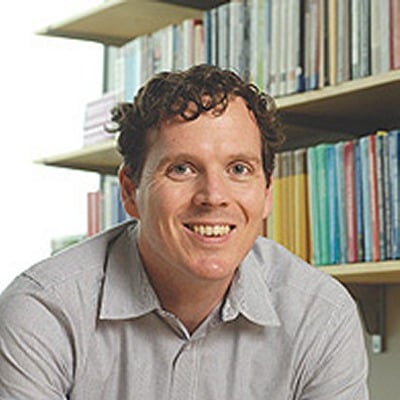hopkins distinguished president clusters
AIX
AI-X
There is a revolution underway in science, engineering, medicine, and public health, accelerated by a rapidly growing constellation of technologies that are built on machine learning and data science.
The AI-X Cluster will build on the intersection of data science, machine learning, and the deep domain expertise at Johns Hopkins to develop scalable AI systems that will drive discovery, decision-making, and prediction in science, engineering, medicine, and public health.
Our investment
This cluster’s investment in research includes: 3 Bloomberg Distinguished Professorships and 3 junior faculty positions. These faculty, along with the cluster leads, will collaborate together along with existing Johns Hopkins faculty on this important area of research.
Cluster scholars will focus on making JHU the destination for scholarship in scalable multimodal AI systems that integrate domain knowledge to drive science, engineering, medicine, and public health.
Rama Chellappa
Department of Biomedical Engineering, School of Medicine
Rama Chellappa is an expert in computer vision, pattern recognition, image and signal processing, machine learning, and biometrics who uses data, geometry, and physics to help computer systems interpret the visual world. Chellappa’s work has impacted smart cars, forensics, and 2D and 3D modeling of faces, humans, objects, and terrain, and has the potential to significantly improve diagnosis and treatment for patients spanning a wide range of diseases.
Chellappa’s research has shaped the field of facial recognition technology—developing detailed face models based on shape, appearance, texture, and bone and muscle structure. Under a recent program, Chellappa and his team developed a high-accuracy face recognition system that serves critical needs for federal and commercial sectors. The team has also worked on modeling facial expressions, with potential for a variety of medical applications. Some of Chellappa’s current projects focus on designing robust machine learning systems that can nimbly adapt to new environments and tasks, as well as on collaborating with mathematicians to build new models for deep learning, a subset of machine learning that maps data to decisions.
Chellappa is the author of Can We Trust AI? which recounts the evolution of AI from its post-World War II origins, celebrates its advances in medical care, transportation, and disaster relief, and offers a pioneering inventor’s view on how it must evolve. It includes a balanced account of the benefits and hazards of AI and how researchers and governments can lead the way toward more convenient, safer, and more equitable uses. The book is part of the Johns Hopkins Wavelengths series.
Chellappa joined Johns Hopkins University as a Bloomberg Distinguished Professor in 2020 from the University of Maryland.

Brian Caffo
E3610 of the Bloomberg School of Public Health Building (615 N Wolfe Street, Baltimore, MD, 21205)
Professor of Biostatistics, Bloomberg School of Public Health
Research Interests
- Neuroimaging
- Statistical methodology
- Data science
- Open education
Brian Caffo, PhD received his doctorate in statistics from the University of Florida in 2001 before joining the faculty at the Johns Hopkins Department of Biostatistics, where he became a full professor in 2013. He has pursued research in statistical computing, generalized linear mixed models, neuroimaging, functional magnetic resonance imaging, image processing and the analysis of big data. He created and led a team that won the ADHD-200 prediction competition and placed twelfth in the large Heritage Health prediction competition. He was the recipient the Presidential Early Career Award for Scientist and Engineers, the highest award given by the US government for early career researchers in STEM fields. He co-created and co-directs the SMART (www.smart-stats.org) group focusing on statistical methodology for biological signals. He also co-created and co-directs the Data Science Specialization, a popular MOOC mini degree on data analysis and computing having over three million enrollments. Dr. Caffo is the director of the graduate programs in Biostatistics and is the recipient of the Golden Apple teaching award and AMTRA mentoring awards.
Projects
Interested in this cluster? Contact us to learn more.
AI & Society
Thematic Areas
Social robotics is an example of use-inspired AI, particularly manifesting the human-AI interaction foundational concept. Taking “aging in place” and community elder care as an example, AI systems can be built to increase opportunities of social interactions for largely isolated aging individuals living at home. Serving as a knowledgeable “companion”, this type of social robot unifies the human learning model and the machine learning model for the specific task of providing cognitively stimulating conversations, storytelling, consultations, psychological counseling, and game playing, etc. These social robots may enhance the mental health of the aging population, but also raise questions about society’s responsibility to our elders, the replacement of human caring and touch with objects that may fulfill some of the roles of human companions but cannot ‘care’ or be in a true relationship with their human users, and older individuals’ understanding of the limits of those objects.
Close collaboration between the technology and social science communities is critical. This will ensure not only that ethical and societal considerations are taken into account at all stages of conceptualization, research, development, and deployment, but also facilitate the development of ethics-driven AI applications and technically-informed conceptual work that will be critical to a human understanding of the meaning of AI in itself and as part of our lives.



No comments:
Post a Comment